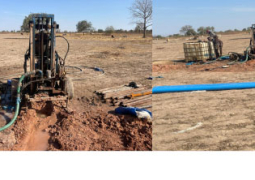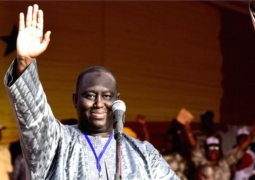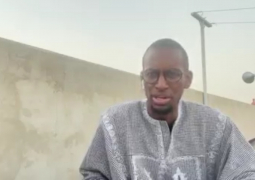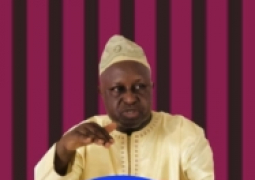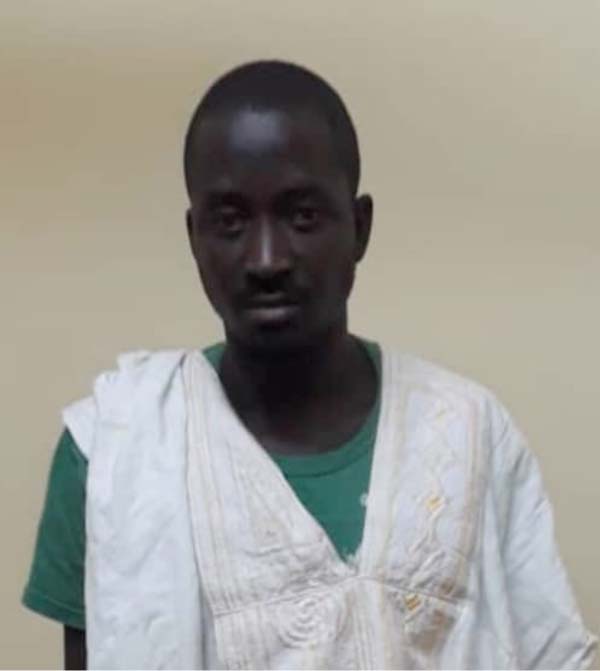
Mr. Sambou confirmed that he made a statement with the police. The said statement was given to him and he went through it. It was then given back to the coroner.
He testified that he was first arrested on the 12th May, 2020, on a Sunday night at Brikama and was taken to BTI in cell No. 2 and was detained until the following day at 2 p.m. when he came across the deceased. “We met and shared lunch and each went back to his cell. We were brought out for dinner,” he told the inquest.
He stated that while they were having dinner he asked the deceased his name and where he came from, adding that the deceased told him that his name was Januaro and he was from Guinea Bissau. “I asked him how he knew The Gambia and he told me that he was arrested at the border. I asked him how he was arrested and he told me that a friend reported him to the officers,” he posited.
The witness stated that he advised him to have faith in God, noting that he told the deceased that he was also reported by a friend and this was why he was in the cell. “I also asked him whether he was bailed and he told me that he was not and was in detention for two months and twenty-six days. He told me that he did not have anyone to bail him. I asked him whether he had someone in The Gambia who could bail him but he said he did not,” he revealed.
Mr. Sambou further said that the deceased told him that he had two brothers abroad but they would not help him. He further narrated that the following day, which was lunch time, he asked the deceased whether his brother had called him and said he did not.
He told the inquest that the deceased told him that he had two brothers in Germany and Portugal and that he should produce a title deed but his brothers failed to help him. “The deceased told me that his father had died in Guinea Bissau and his mother as well. He also told me that his wife had a two-month-old baby and this frustrated him,” the witness testified.
Mr. Sambou adduced that he asked the deceased how he communicated with his brothers and the deceased told him that the S O would lend him his mobile phone to call his brothers abroad but they would not communicate with him via WhatsApp. “The deceased told me that one of his brothers told him that he could die in the cell. We later went back to our cells,” he narrated.
He said the following day at lunch, after they washed their hands, the deceased put his hand into the basin but did not eat. “I asked him what was wrong and he told me that both of his parents passed away which found him in the cell. I was sympathetic to him. I almost forgot my problem because of the frustration of the deceased,” he adduced.
He said he again asked the deceased to eat but he tried a little and got up and went back to his cell and lay down. He revealed that they did not chat as they used to do. “The following day at lunch again, I was just trying to encourage him and told him that even some of the prophets suffered and no condition is permanent. He then asked me to give him his mobile phone and he called his wife. They communicated in Creol which I did not understand. He used his smart phone to speak to his brothers abroad but they did not respond,” Mr. Sambou told the inquest.
The witness further adduced that when the deceased again phoned his brother who is in Germany, he promised to send him money, but the deceased said he was not sure whether his brother would send him money because he had been in detention for two months and twenty-six days.
The following day, while they were having lunch, the witness said, the deceased did not have any discussion with him about his case. “I spent ten days in detention. We were three in the cells and had lunch together but the third person was later granted bail. The deceased told me that he did not see the need to stay in this world since his father had passed away and his brothers were not supporting him,” he revealed.
He stated that the deceased again called his brother in Germany for help but the latter only promised, adding that they went back to their cells. He posited that it was the very day he, the witness, was supposed to be granted bail with a title deed.
“When the station officer was going home, he asked the deceased what he wanted as dinner. The deceased told him that he wanted bread and egg. The station officer then gave us D200 to buy dinner. The money was given to Muhammed, an officer, who bought some juice for the deceased as he later requested. He also bought two loaves of bread with canned fish for us,” Mr. Sambou said.
He noted that he ate his bread but the deceased did not eat his but only drank his juice, further stating that he peeped through the window of the cell of the deceased and asked him why he was not eating and he told him that he had a lot of stress.
“I advised him to eat. At night, I heard a noise in the cell of the deceased. I thought that there were some boys who were playing at the back around 8 p.m. to 9 p.m. That was the time I entered the toilet and I realised that the noise was coming from the other end. I then shouted to the deceased: ‘Big man. Big man,’ but nobody responded. I heard somebody hitting the wall. While I was lying down, I thought that the deceased was hanging himself,” he testified.
He said he called Muhammed but he was not available, adding that he lay down again. “After some time, the officer on duty was inspecting us with a torch light. As he flashed his torch light at my cell, I quickly woke up. When he flashed the torch light at the cell of the deceased, he saw him hanging and he called his colleagues and told them that he had hanged himself,” he told the inquest.
The witness stated that the officers were peeping through the window, and when Ebrima, an officer, saw the deceased, he started trembling, noting that he, the witness, was standing at his window. “Then Ebrima phoned the station officer and told him that the deceased had hanged himself. The station officer told Ebrima not to touch the deceased, and the station officer later came to the scene. The officer commanding also came and shed tears when he saw how the deceased was hanging. I asked Ebrima to allow me to look at the deceased but he asked me to wait for the OC who came with two other officers and they called the drug squad,” the witness said.
He further stated that some police officers came and said that he should be removed from his cell. He adduced that when he was removed from his cell. He went to the cell of the deceased and found him hanging. “They then took me to an office and I saw different police officers at the station with different uniforms. The station officer told the drug squad officers to take me so that they could interrogate me as to what were the last words of the deceased,” Mr. Sambou revealed.
He said he told a drug squad officer what the deceased had told him when they had lunch, and that the deceased told him that he did not see the need to live in this world. He posited that he then told the Station officer that that was the last conversation he had with the deceased.
“When I went back, I found that the cell of the deceased was opened and some police officers were taking pictures of the scene. They took out the dead body and also took pictures of the deceased. They then took the dead body into a truck and proceeded to the hospital. I could not sleep throughout the night when I was returned to my cell,” he narrated.
He noted further that the station officer asked him whether he did not hear any noise from the cell of the deceased and he replied that he did but thought that some boys were playing. “The station officer asked me whether I called the officer on duty when I heard the noise and I told him I did but I did not shout enough to be heard,” he testified.
He told the inquest that when they were in detention, they had their meals three times a day. He added that there was no shortage of water in his cell. “The deceased once told me that his ribs were paining. He was then taken to the hospital but the doctor said they did not detect any illness. The deceased never complained that he was hungry,” he stated.
He said that the day he was released, the deceased’s brother spoke to him on the phone in Portuguese but could not understand him, adding that he sent him a message that the deceased had killed himself while he was in detention. “Nobody visited the deceased while he was in detention,” he concluded.
At this juncture, the coroner asked him to sign his testimony, which he did.


